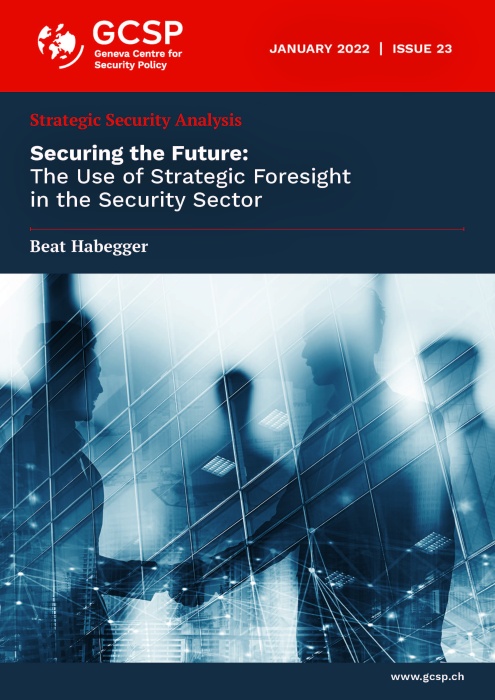Securing the Future: The Use of Strategic Foresight in the Security Sector
03 February 2022
Key Points
- Modern security policy is shifting from focusing on all types of risks to adapting to all types of situations. Security organizations – defense ministries, intelligence agencies, police forces, or armed forces – must therefore increase their focus on resilience-oriented security management.
- Strategic foresight can make an important contribution to resilience-oriented security management, as it enables a synchronized focus on multiple threats embedded in a longer-term security perspective. Several security organizations, including NATO, have already begun to use foresight.
- Security organizations must carefully select foresight activities to ensure they serve their intended purpose. The process model and success factors outlined in this paper provide guidance on what is needed for making forward-looking thinking and action to become the norm in security policy and security organizations.
- Foresight has the potential to change the way organizations and their employees think, behave, and act. As such, it can strengthen them in their efforts to prevent, defend against, and mitigate security risks, contributing to effective security management of the current and future risk landscape.
Disclaimer: The views, information and opinions expressed in the written publications are the authors’ own and do not necessarily reflect those shared by the Geneva Centre for Security Policy or its employees. The GCSP is not responsible for and may not always verify the accuracy of the information contained in the written publications submitted by a writer.


